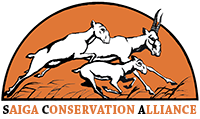Protected areas, in particular national parks, play a special role in the development of eco-tourism in Karakalpakstan. It should be noted that Karakalpakstan has broad prospects for the development of eco-tourism, the deployment of a unique and sustainable network of ecotourism routes that are attractive to all categories of tourists, with the further integration of the republic into the international market of such services.
On September 11, 2023, another training was held in Tashkent for employees of the Ministry of Ecology, Environmental Protection and Climate Change, the Committee on Tourism, the Research Institute of Tourism Development, the College of Tourism, as well as travel agencies within the framework of the project “Resurrection Island: nature conservation and development of the Aral Sea region”. The training “Tourism and biodiversity in Karakalpakstan: in search of opportunities” was devoted to the analysis of the republic’s experience and best international practices in the development of eco-tourism, discussion of the existing potential in the Republic of Karakalpakstan for the development of ecotourism and mitigating the impact of tourism, as well as recreation on the biodiversity of Karakalpakstan.
The international project “Resurrection Island: conservation of Nature and Development of the Aral Sea Region” is being implemented by the Institute of Zoology of the Academy of Sciences of the Republic of Uzbekistan together with the University of Oxford (UK), the Saiga Conservation Alliance (SCA), the Ministry of Ecology, Environmental Protection and Climate Change, the Research Institute for the Study of Problems of Cultural Heritage Objects and Development tourism, as well as JV Uz-Kor Gas Chemical LLC and is carried out with the support of the British Darwin Initiative Foundation. The project promotes the creation of a protected area on the former bottom of the Aral Sea in order to preserve the unique biodiversity of this region and develop sustainable sources of income for the local people, including through the development of sustainable forms of tourism (ecological tourism), and also ensures mitigation of the impact on biodiversity through the application of the principle “zero losses for nature”.
International expert and professor at Oxford University (UK) J.W. Bull conducted the training in an interactive format using the best international experience in the development of eco-tourism using the examples of the Serengeti (Tanzania) and Misoula (Indonesia) projects. During the training, participants exchanged information and ideas on the implementation of the new “Strategy for Sustainable Tourism Development in the Republic of Karakalpakstan” (2023), analyzed new (pilot) tourist routes in Karakalpakstan, and also studied the case of the Aralkum-Sulama route.
During the practical session, working in small groups, participants developed an Action Plan to analyze unused opportunities for ecotourism in the Aral Sea region, identified needs (e.g. infrastructure, advertising, etc.) and identified priority areas in the development of cross-border tourism and cooperation. We discussed the development of such promising areas as rural tourism, support for the development of guest houses, and the construction of smart eco-houses, and suggested thinking about the prospect of creating safari parks.
During the presentations of the work, the groups also made recommendations for improving the effectiveness of tourism marketing, taking into account the special needs for the implementation of the development strategy of Karakalpakstan.
The chief specialist of the Tourism Committee under the Ministry of Ecology, Environmental Protection, and Climate Change noted the relevance of the seminar and emphasized that it is important to focus on the development of small tourism around large tourism projects. It’s important to work with intellectual enthusiasts who understand, know, and want to do something original.
Thus, the project provides systematic support for the development of eco-tourism in Karakalpakstan, understanding the importance and potential of this sector for the country’s economy and prioritizing the importance of maintaining the balance between nature and humans for the sustainable future of the next generations.
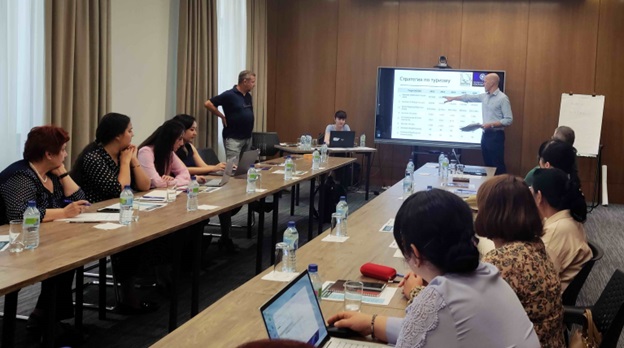
Joe Bull presents a strategy for the development of tourism in Karakalpakstan
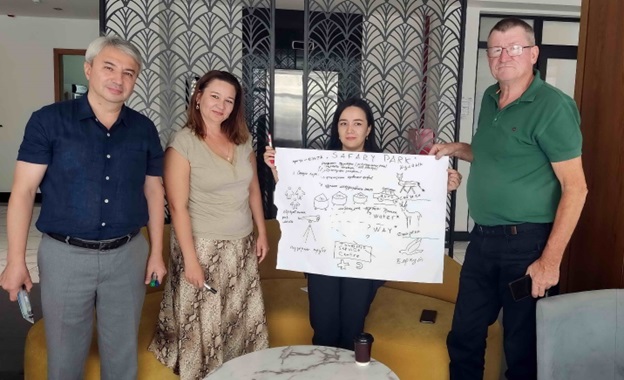
Safari Park Concept Development Group
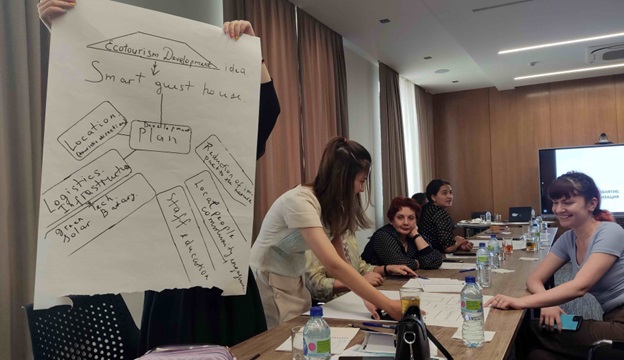
The concept of “smart home” in development
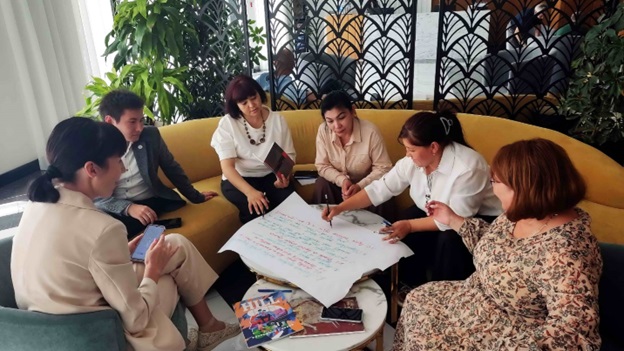
An active discussion of the stages of development of small-scale hotel business in established regions
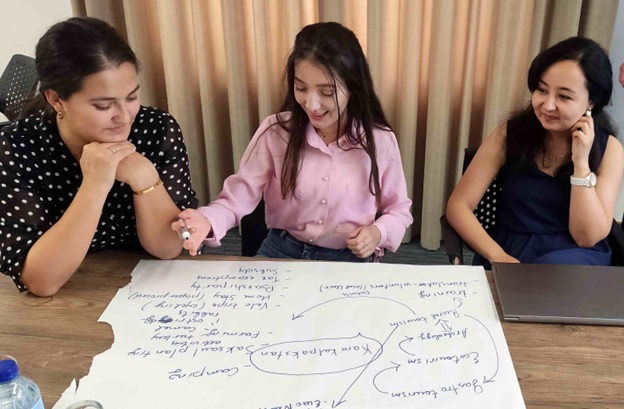
Discussion of opportunities for the development of rural tourism in the Aral Sea region
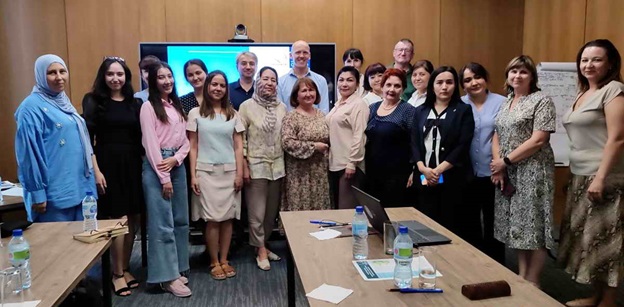
Participants of the training on tourism 2023
